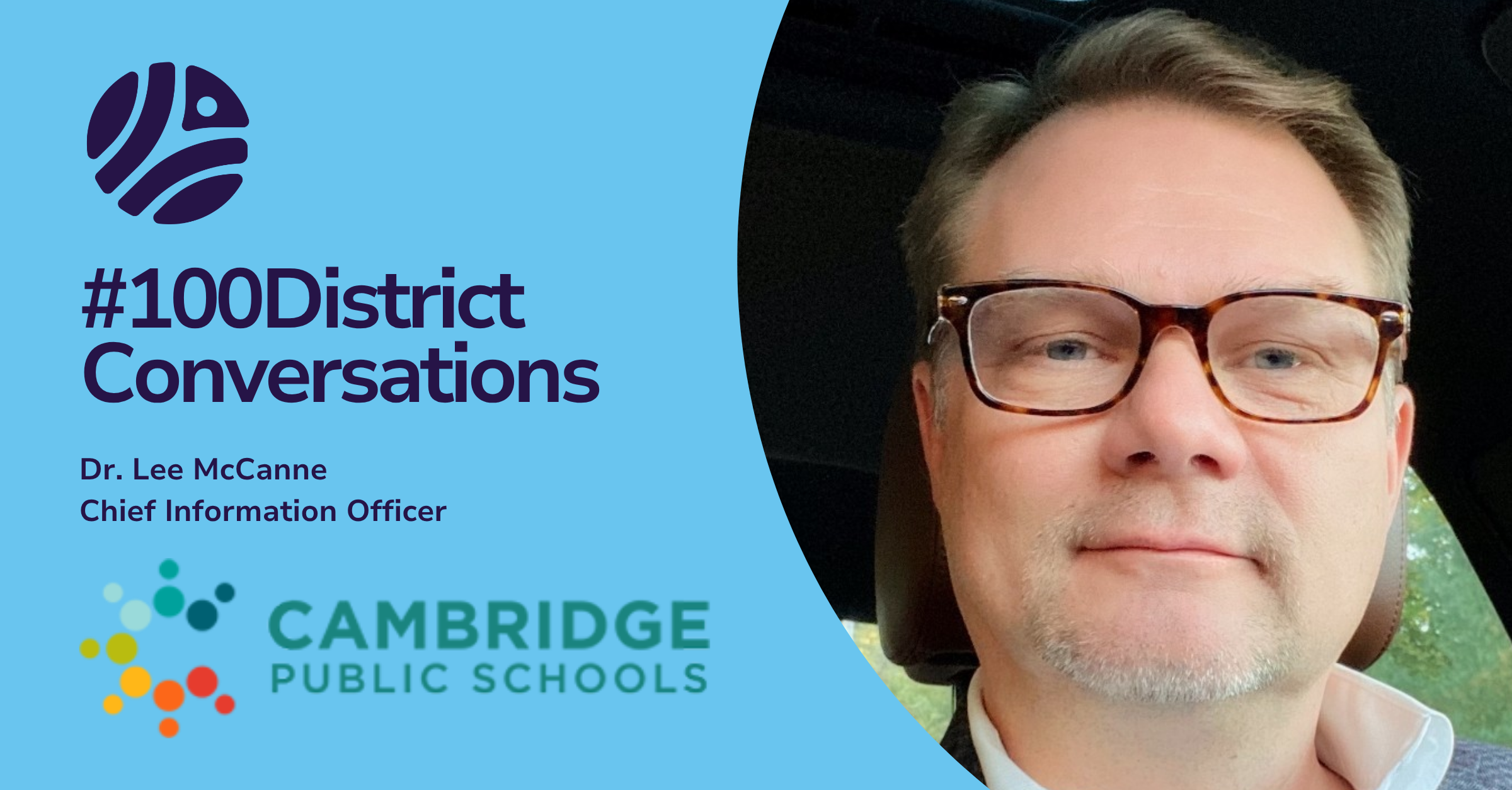#65 Lee McCanne

Truly grateful to Jim Flanagan, executive director of the Massachusetts Educational Technology Administrators Association (METAA) for introducing me to Dr. Lee McCanne for conversation #65. Lee is the Chief Information Officer for Cambridge Public Schools and has a wealth of experience bridging education technologywith curriculum and instruction. His insights regarding best practices for rolling out artificial intelligence in districts was perfect for #100DistrictConversations.
"Last year was my first year in Cambridge after 16 years with Weston Public Schools. Meeting with and listening to folks across my district was an incredible learning experience. My recent findings and our strategic planning report elevated that we have amazing people and are well-resourced. We are fortunate to have integration specialists and librarians in every school, as well as a talented group of technicians shared across buildings. However, our missing ingredient is time within school schedules to deliver and integrate digital media and AI literacy. We need instructional time and planning time to partner on collaborative learning with faculty.
The AI revolution has created the perfect storm of curiosity and urgency, allowing us to address two critical needs simultaneously: backfilling gaps in media literacy delivery while preparing for the expansion of AI literacy. I’ve learned that we cannot have meaningful discussions about the implications of student AI use until we educate our leaders and teachers in AI literacy. Until teachers fully understand what students can do with the technology, for better or for worse, we cannot develop meaningful and sustainable implementation plans.
I believe that successful AI professional development should be inquiry-driven. The hype and press have created a sense of mourning and fear regarding AI's potential to disrupt the traditional writing and skill-building process. This needs to be acknowledged, then redirected to the actions necessary for our educational process to remain rigorous. We have the opportunity to rebuild teacher identity around what we all got into education for: being coaches, mentors, and guides for our students' academic journeys. This ensures the human aspect of education, and the students themselves, remain at the center."
Our curriculum leaders are committed to delivering quality instruction and meeting students where they are. But what does that look when we know students are already using AI independently? And, what do we want it to look like in the future?
My hope is to partner with our curriculum leaders this year to better understand how to minimize the drawbacks and leverage the potential opportunities through thoughtful pilots and shared analysis. We are already developing a digital media and AI curriculum map that will enable us to visualize gaps in the delivery of these curricula and identify potential bridges for coherence across the district."
If you're a district leader or know of a district leader who should be featured in the #100DistrictConversations initiative, please use this nomination form.
